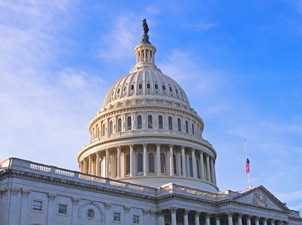
Increasing Access to Health Care for Millions in Build Back Better
Julia Morris
September 22, 2021
This week, Congress is negotiating increasingly urgent policies to extend access to health care as part of the Build Back Better plan. In the midst of the COVID-19 pandemic, health care is a growing concern for many living in the United States, especially the tens of millions of people who are uninsured. In communities already facing long-standing health disparities: low-income, elderly, Black, Brown, and Native American – increasing access to healthcare will save lives.
Access to health care is a moral issue; with some moderate Democrats and most Republicans looking to cut large portions of this bill it could result in adding to the toll of needless lives lost in the pandemic. Congress must include all of the healthcare provisions in the Build Back Better plan to ensure all people living in our nation have access to quality, affordable, and equitable health care.
Here are key policies to keep your eye on:
Extending Healthcare Subsidies in the American Rescue Plan
Coverage under the Affordable Care Act is too expensive for many families, especially with many in the U.S. seeing lower earnings in 2020. By extending the American Rescue Plan’s cost savings, we can lower health care costs for those getting coverage through ACA.
Medicaid Expansion in Four Key Areas
Millions of Americans, especially low-income adults, children, pregnant women, elderly adults and people with disabilities rely on Medicaid. Expanding Medicaid in these four areas is key to addressing long-standing racial and economic disparities in coverage and access to care.
Non-Expansion States
A large portion of those who rely on Medicaid are spread throughout 12 states who have refused to expand Medicaid. This leaves two million people without insurance, in spite of support from a majority of states’ residents and overwhelming evidence that expansion will create significant improvements in coverage, health outcomes, and financial security.
Providing Medicaid Coverage for Incarcerated Individuals
Giving states the ability to expand Medicaid programs to cover incarcerated individuals 30 days before their release would tackle the disproportionately high rates of mental illness, substance abuse disorders, and chronic physical health conditions seen in people who have experienced incarceration. Closing care gaps would provide stability during this important transitional period.
Closing the Gap in Medicaid Funding to the U.S. Territories
Territories do not receive Medicaid funding, instead they are given a fixed block grant that often does not cover their healthcare needs. Congress needs to renew Medicaid funding in territories to ensure that everyone in the United States can access quality, affordable care no matter where they live.
End the Waiting Period for Immigrants to Access Medicaid and CHIP
Lawfully present immigrants must live in the U.S. for five years before being able to access Medicaid and CHIP. This harmful waiting period prevents millions of people and families from having access to quality, affordable care. We should not put limits on who is or is not deserving of health care.
Black Maternal Health Momnibus Act Investments
Historic investments from the Black Maternal Health Momnibus Act will save lives, build healthy families, end racial and ethnic maternal health disparities, and further birth equity in the United States. The Momnibus Act aims to do this by strengthening federal maternal health programs, will make federal funds permanently available for states to spend on expanded postpartum Medicaid and CHIP coverage to one year in every state, with full state plan benefits throughout pregnancy and the yearlong postpartum period.
Expanding home-based care options
Providing funding for home-based care options impacts the elderly community and people with disabilities. Expanding home-based care options also aims to address our nation’s growth in its elderly population — failing to invest in care will strain an already understaffed workforce of caregivers; stress children trying to care for their loved ones; and complicate retirement for millions.
As Pope Francis said: “A health service that is free and guarantees good service accessible to all … This precious good should not be lost. It must be maintained and everyone should be committed to this. Because everyone needs it … ” Failing to ensure that these healthcare measures make it through Congress would be detrimental to the lives of millions. Building back better after the incredible loss of the last two years is going to push us to reject thinking that encourages us to ignore the suffering of others.







